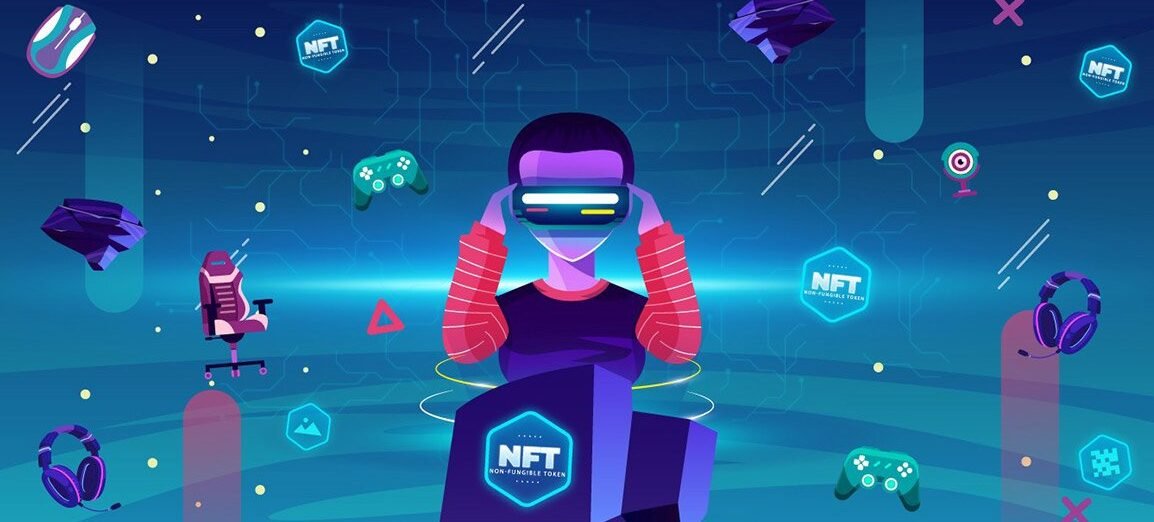The Grand Theft Auto (GTA) series has constantly innovated open-world gaming. GTA V sets unheard-of milestones in virtual storytelling, player interaction, and income, raising great hopes for GTA 6. Fans and analysts ask whether GTA 6 will embrace the metaverse and transform player experiences using blockchain technology and digital rewards as the gaming sector turns toward developing technologies like the metaverse, blockchain integration, and distributed player economies.
Under the cover of Take-Two Interactive, this deep dive investigates the potential of Rockstar Games to match the future-forward ideas of Web3, virtual ownership, and metaverse interoperability with the next iteration of its blockbuster franchise.
Gaming Meets the Metaverse
Originally a buzzword used in science fiction, the term “metaverse” is now a pillar of contemporary digital ecosystems. Businesses, including Microsoft, Epic Games (makers of Fortnite), and Meta (previously Facebook), fund billions in shared virtual worlds where users can socialise and engage in immersive events.
Within the game space, the metaverse is a constant, linked reality in which players are stakeholders rather than just users. This vision revolves increasingly around features like cross-game identification, marketable assets, NFTS (non-fungible tokens), and blockchain-enabled economies. Though relatively primitive compared to the scope and polish of a GTA release, early metaverse-inspired ecosystems include games like Decentraland, The Sandbox, and Axie Infinity. Thus, the real question is whether Rockstar Games’ integration of these intricate ideas into GTA 6 will help them become widespread.
Rockstar & the Metaverse
Examining Rockstar Games’ past helps one to see how GTA 6 might embrace the metaverse. Renowned for stretching limits, Rockstar has never backed down in reinventing what open-world games can be. From the expansive metropolitan scene of GTA: San Andreas to the dynamic, changing universe of GTA Online, the developer regularly establishes standards in virtual design, storytelling, and player agency.
Rockstar has previously established a semi-persistent online universe where users may own properties, run companies, and engage in various social and criminal enterprises using GTA Online. In many respects, this is a forerunner of what a metaverse experience might be, just without actual digital ownership or blockchain technology.
NFTs and Play-to-Earn in Gaming
Integration of blockchain technologies might be the franchise’s logical subsequent development. Verifiable ownership of in-game goods, peer-to-peer, distributed economies, and even play-to-earn (P2E) systems rewarding time investment with real-world value clearly show benefits.

Imagine owning a virtual car in GTA 6 that is marketable with other players, minted as an NFT on a blockchain, and may be helpful in other metaverse-compatible games. Alternatively, you could gain tokens from heists and missions eligible for trade for either fiat money or cryptocurrencies.
Technical infrastructure now exists to support a high-volume AAA game with millions of concurrent users, given the advent of Ethereum Layer 2 networks like Polygon, Immutable, and Arbitrum, which provide quick, cheap transactions. Though Rockstar has not made any public comments on blockchain integration, Take-Two CEO Strauss Zelnick has indicated interest in the possibilities of Web3, indicating that the business is at least investigating the field.
GTA’s Metaverse Economy
The metaverse’s economy is another key component; few games offer in-game economics better than GTA. However, the money is contained within the Rockstar ecosystem on GTA Online. Turning to a blockchain-enabled economy would allow participants to create digital assets with actual worth.
A usintokenized economy might reflect ideas like Gods Unchained, Illuvium, or even Stepn, where native tokens act as rewards and governing tools. Perhaps in line with Rockstar’s larger digital agenda, GTA might release its ecosystem coin, allowing users to vote on in-game legislation, support virtual businesses, or stake assets for passive rewards. This would allow the prospect of play-to-earn systems, whereby interested or experienced gamers may create actual income from gameplay—a paradigm change in conventional gaming models.
Balancing Blockchain in GTA 6
Blockchain integration has possible drawbacks, even if it sounds interesting. Mainstream players who link NFTS and tokens with fraud, speculative bubbles, or pay-to-win mechanisms still mistrust the crypto ecosystem. Rockstar has to find a careful balance between accessibility and creativity.
For GTA 6, optional integration is probably the approach. The game might have an opt-in system wherein players interested in digital ownership, metaverse experiences, or P2E can participate without upsetting the experience for regular users, instead of pushing blockchain components on every user.
Already under test in games like My Pet Hooligan and Shrapnel, this hybrid approach integrates blockchain layers under the surface without overpowering the basic gameplay loop.
GTA 6 & Metaverse
Beyond economics and ownership, the metaverse is about presence and engagement. Inspired by Fortnite’s Travis Scott concert or Roblox’s Lil Nas X performance, GTA 6 might bring dynamic social hubs, virtual concerts, and real-time multiplayer activities. These events could be sources of income and instruments for community involvement.
With VR and AR interfaces in support, Rockstar might leverage immersive technologies to further player immersion. Given GTA’s sarcastic view of current society, integrating metaverse elements might be part of the game’s plot, provoking a meta-commentary on digital identity, surveillance, and virtual capitalism.
Tokenizing GTA 6: Expanding Assets Across the Metaverse
Interoperability is one of the metaverse’s ultimate objectives since it lets assets and identities flow naturally across virtual worlds. Should GTA 6 assets be tokenised on a public blockchain, they might find use on other metaverse platforms, such as VRChat, The Sandbox, and Ready Player Me.
Such integration would use a far larger digital environment, raising the value of in-game assets and stretching the GTA universe outside its boundaries. Rockstar might collaborate with current blockchain initiatives to produce branded partnerships, limited-edition NFTS, or event-based crossovers.
Last Thoughts
Although Rockstar has been quiet about specific GTA 6 specifics, industry trends, executive interviews, and player expectations, metaverse components seem most likely to be investigated at least. GTA 6 is positioned to close the distance between conventional AAA gaming and the Web3 future, whether through optional blockchain rewards, NFT-based assets, or better multiplayer social spaces. GTA 6 might become the historic game that redefines what it means to play, earn, and exist in a virtual environment as gaming develops from passive entertainment to engaged digital economies.
